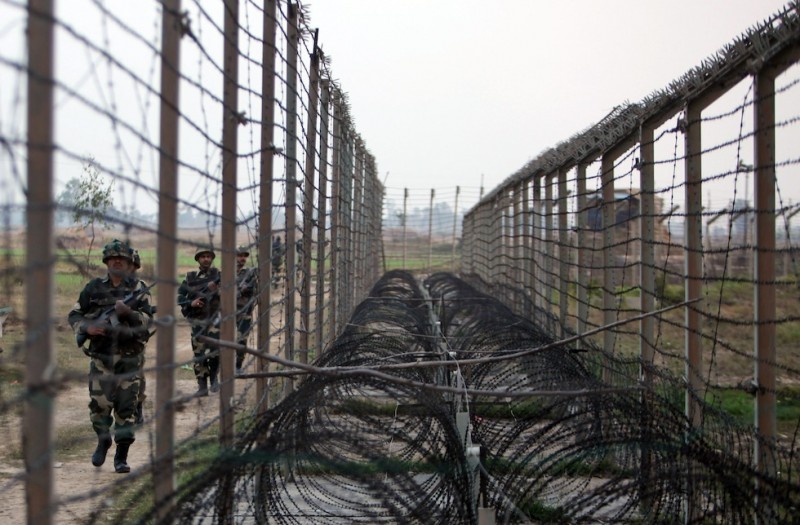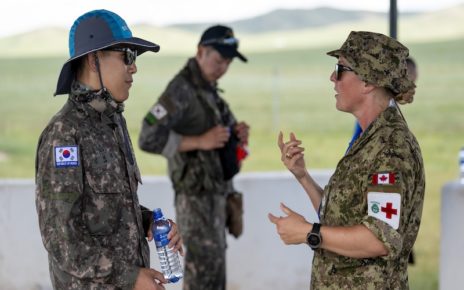Kashmir’s title as the subject of an intractable conflict has recently been amplified in light of India’s plans to build a separation wall in the Himalayan region. The purpose of the wall is to separate the Indian-administered areas from the areas controlled by Pakistan. Border Security Force official, Dharminder Parikh, claims that “[the wall] would be the most significant Border Guarding System in the country which has not been experimented or created in India before.” Further to this claim, India will take appropriate actions in response to ceasefire violations by Pakistan. Ultimately, India is seeking to halt rebel groups from illegally crossing into India-administered de facto zones.
[captionpix align=”left” theme=”elegant” width=”300″ imgsrc=”http://natoassociation.ca/wp-content/uploads/2013/12/201310361151127734_20.jpg” captiontext=”Indian soldiers battling rebel groups”]
The Line of Control (LoC) refers to the military control line between the Indian and Pakistani-administered areas. The separation line has been formed by coils and stands several metres high, with a double row of wire fencing. India intends to further strengthen and transform the separation line into one that is not capable of being permeated by rebel forces. The state would like to do this by essentially mimicking the Israeli separation wall; it is believed that India is currently using surveillance devices (attached to the wire fences) that have been created in Israel. Moreover, the separation wall will have a multi-tier screening system, as well as a trench that India will dig in parallel to the wall.
The idea of building a separation wall has been in talks for some time now. A top police officer visited Israel in 2012 for the purpose of observing the wall and, subsequently, voiced his support for building a similar one in India. As opinions began to stir up ideas, many soldiers within the Indian army raised some important issues. As an example, some argued that the wall would isolate villages. Other groups, such as pro-independence political parties, voiced their concerns by comparing a wall in Kashmir to the one that once existed in Berlin. Shabir Shah, the activist who makes a comparison with the Berlin wall, once claimed that “the 21st century is not for building political walls along borders but to dismantle them.”
The construction of a wall that is meant to separate a region will be opposed by a multitude of people. As history has shown us, walls have been built for the purpose of preserving occupied territory or for imposing restrictive measures on an individual’s freedom of movement. India must prevent itself from falling into the dangerous cycle of regressive nostalgia.




